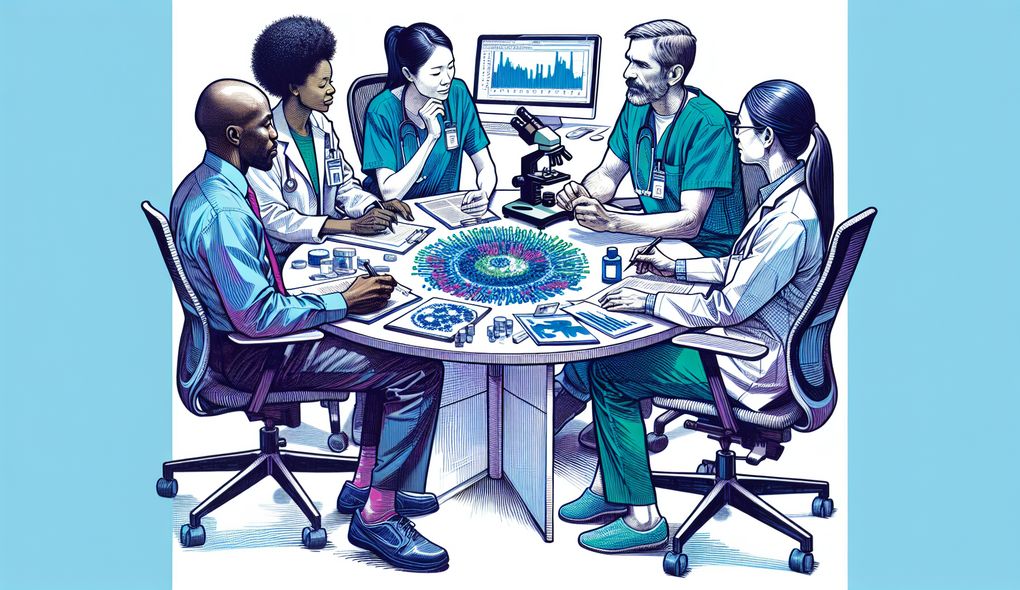How do you ensure accurate data collection, documentation, and record keeping in a clinical research project?
JUNIOR LEVEL

Sample answer to the question:
To ensure accurate data collection, documentation, and record keeping in a clinical research project, I always prioritize attention to detail. I double-check all data entries and make sure they align with the study protocol. Additionally, I maintain organized and up-to-date records by using electronic data capture systems and MS Office. I understand the importance of confidentiality and ensure that all sensitive information is handled securely. To facilitate accurate record keeping, I regularly communicate with team members to clarify any uncertainties and ensure a consistent understanding of the data collection process. Overall, my strong analytical and problem-solving skills contribute to my ability to maintain accurate data collection and documentation in a clinical research project.
Here is a more solid answer:
To ensure accurate data collection, documentation, and record keeping in a clinical research project, I employ several strategies. First, I meticulously follow the study protocol and adhere to Good Clinical Practice guidelines. This ensures that all data entries are precise and consistent. I am proficient in using electronic data capture systems and MS Office, allowing me to efficiently record and organize data. I am also skilled in analyzing data for any inconsistencies or errors. To maintain confidentiality, I strictly adhere to privacy protocols and handle sensitive information securely. Additionally, I prioritize effective communication with team members to clarify expectations and ensure a shared understanding of data collection procedures. My strong attention to detail and analytical skills contribute to my ability to maintain accurate data collection and documentation throughout a clinical research project.
Why is this a more solid answer?
The solid answer includes specific details about the candidate's experience following study protocols and using electronic data capture systems and MS Office. It also emphasizes their adherence to confidentiality protocols and effective communication with team members. However, it could still be improved by providing more concrete examples of how the candidate has ensured accurate data collection and documentation in past projects.
An example of a exceptional answer:
Ensuring accurate data collection, documentation, and record keeping in a clinical research project is vital to maintaining the integrity of the study. In my previous role as a Clinical Research Coordinator, I successfully implemented several strategies to achieve this. Firstly, I developed a comprehensive data collection plan that included clear instructions and standardized data entry templates. This minimized the risk of errors and ensured consistency across the study. To enhance accuracy, I conducted regular data quality checks, comparing records to source documents and resolving any discrepancies. Additionally, I maintained a detailed record-keeping system, categorizing documents based on regulatory requirements and study milestones. This facilitated easy retrieval and ensured compliance with record-keeping guidelines. Furthermore, I engaged in continuous training to stay updated on evolving regulatory guidelines and software platforms, enabling me to optimize the use of electronic data capture systems. Lastly, I established a culture of teamwork and open communication within the research team, fostering a collaborative approach to data collection and documentation. Through these strategies, I consistently achieved accurate data collection, documentation, and record keeping in clinical research projects.
Why is this an exceptional answer?
The exceptional answer provides specific examples of the candidate's strategies for ensuring accurate data collection, documentation, and record keeping. It highlights the candidate's attention to detail, commitment to training and staying updated on regulatory guidelines and software platforms, and their ability to foster a collaborative work culture. The answer also demonstrates the candidate's ability to resolve discrepancies and optimize the use of electronic data capture systems. It is comprehensive and goes beyond the basic and solid answers by presenting a clear and detailed approach to achieving accurate data collection and documentation in clinical research projects.
How to prepare for this question:
- Familiarize yourself with Good Clinical Practice (GCP) guidelines and ensure you understand their importance in ensuring accurate data collection and documentation.
- Highlight any experience you have using electronic data capture systems and MS Office for recording and organizing data.
- Think of specific examples from your past projects where you ensured accurate data collection and documentation, and be prepared to discuss them in detail.
- Demonstrate your ability to handle sensitive information securely and maintain confidentiality throughout the research process.
- Emphasize your attention to detail and analytical skills, as they are essential for accurate data collection and record keeping in clinical research projects.
What are interviewers evaluating with this question?
- Detail-oriented
- Analytical skills
- Communication skills
- Time management
- Confidentiality
- Software proficiency

